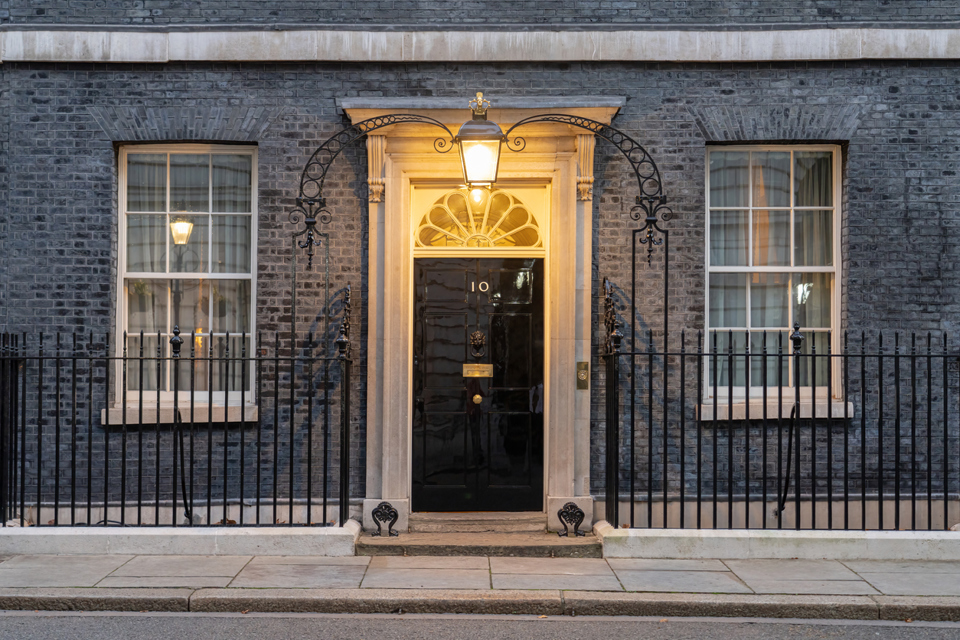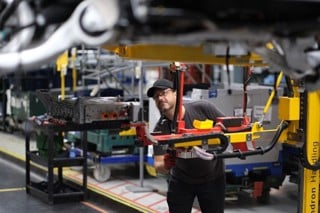The policies of Labour will shape the fleet and leasing industry for the next few years after the party won a massive majority in the General Election.
Its manifesto vowed to reintroduce the ban on the sale of new internal combustion engine (ICE) cars from 2030, but made no mention of whether that will also apply to vans.
It pledged to fix an additional one million potholes across England in each year of the next Parliament, funded by deferring the A27 Arundel bypass, which it says is poor value for money.
That equates to just £320m from scrapping the A27 Arundel bypass with the previous Government having committed £8.3bn from the cancelled northern leg of HS2.
It said it would also support the transition to electric vehicles (EVs) by accelerating the roll out of charge points and supporting buyers of second-hand electric cars by standardising the information supplied on the condition of batteries.
There was no mention of reinstating the plug-in-car grant, neither were there any assurances over fuel duty or future benefit-in-kind (BIK) tax rates.
Gerry Keaney, chief executive of the British Vehicle Rental and Leasing Association (BVRLA), said that after a period of great political uncertainty, the industry collectively hopes for stability that will allow action to be taken and progress to be achieved.
“The time for blanket decarbonisation policies has been and gone,” he continued.
“As the transition towards cleaner, greener vehicles evolves, the need for specific interventions becomes clear. Up to now, powerful tax incentives for company-provided cars have accelerated adoption among fleets but left retail and rental lagging.
“For the transition to be embraced by all sectors, targeted action is needed.
“Charging infrastructure, the used market, and vans are just three of the areas demanding closer attention.”
Ian Hughes, CEO of Zenith’s corporate and consumer divisions, believes what the sector needs right now is clarity on the transition to EVs, which in turn, will breed consumer confidence and increase adoption.
“As an industry, we’ve seen the 2030 deadline on the sale of ICE vehicles pushed back, infrastructure targets being missed, and a host of misinformation in the press, which is ultimately impacting the pace at which the UK can meet its net zero targets,” he added.
“We hope a new Government can make a start on building that confidence.
“Labour’s manifesto highlighted one or two actions that could make a welcome difference, and we need these to be a top priority.
“However, it is vital that we urgently see the introduction of measures that incentivise used BEVs through either a reduction of VAT or a grant direct to the consumer.
“This will promote adoption and supercharge engagement to ensure the market starts to work efficiently and correctly.
“We look forward to continuing our work with industry bodies and the new Government to ensure this can happen.”
The RAC is calling for the new Labour Government to urgently tackle the most pressing concerns of the UK’s 40 million motorists in its new transport policy.
RAC head of policy Simon Williams said: “Roads ravaged with potholes. Drivers ripped off at the pumps. No progress on reducing road casualties. To say the incoming transport secretary has a lot to address is a huge understatement, but a new Parliament is a huge opportunity to improve the lives of all road users.
“Top of the list has to be the thorny issue of fixing Britain’s broken roads which will sadly take far more money than the promised £320m from scrapping the A27 Arundel bypass. And the roads funding hole will be even bigger if the previous Government’s commitment to spend £8.3bn from the cancelled northern leg of HS2 on improving roads isn’t honoured.”
It wants the recently legislated Pumpwatch fuel price monitoring scheme to be introduced quickly and the official government Private Parking Code of Practice to be “pushed over the line after five years of delays”.
“We also want to see the National Parking Platform rolled out as soon as possible so drivers can use one app of their choice to pay for all their parking,” said Williams.
“Alongside this, we want a firm commitment from the Government to ensure drivers always have at least two means of payment. As surprising as it might seem, cash is still the preferred payment method for many.”
EV incentives required to drive adoption

Thom Groot, CEO of the Electric Car Scheme, wants to see the Government extend low BIK rates until 2035 at 5%, lower the VAT on public charging to 5% to bring it in line with the cost of electricity at home and avoid the temptation to impose tariffs on affordable EVs from outside the UK.
“Keir Starmer will have a bulging in tray over the next few months, but he and his Government cannot afford to let this key policy fall down the priority list,” he said.
“If this happens again, as it did under the Tories when the deadline was initially extended, the goal risks becoming totally unrealistic. What the industry, and the public, needs is a clear plan to reach 100% EV sales by 2030.”
That focus on electrification from the new Labour Government was also the main message from the Vehicle Remarketing Association (VRA).
Philip Nothard, chair of the trade body, said: “We’d like to see measures to support the transition to electrification through both an acceleration of the creation of charging infrastructure – especially on urban streets – and direct help for people who want to buy a used EV.
“It’s pretty clear that the used EV market is not yet functioning in anything approaching a normal manner and this really needs to start happening if the Government is serious about its approach to zero emissions.
“Also, we need to see more investment for manufacturers who are switching to EVs over this decade. The levels of competition in the market are ferocious, and car and van makers operating in the UK will need support to compete successfully.”
Sue Robinson, chief executive of the National Franchised Dealers Association (NFDA), which represents car and commercial retailers across the UK, believes that the next few months and years will be pivotal for the industry.
“It is essential that the new government works with NFDA and the automotive sector throughout the UK to offer robust support on these key issues while unlocking the dynamic potential of this sector,” she said.

























Login to comment
Comments
No comments have been made yet.